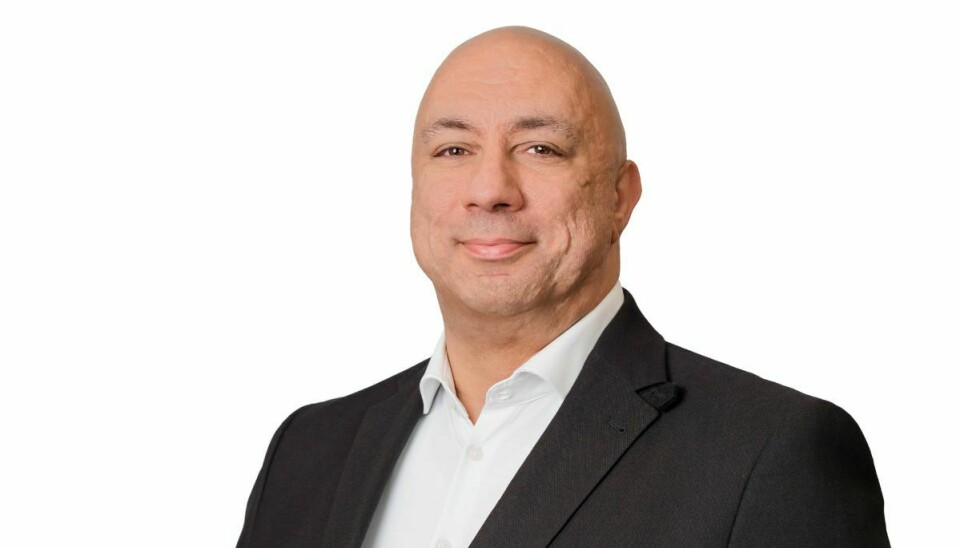Interview with top manager from Rockwell Automation
How to successfully enter new markets and industries

Which strategies help when entering new markets? And where is it worthwhile right now? Vincenzo Monaco from Rockwell Automation explains in this interview.
When customers want to enter new markets, which strategies do you use to support these customers in entering new markets? What are the first steps?
Vincenzo Monaco: So the first step is to understand: What does "new markets" mean for customers? New markets are two topics:
Let me give a simple example: A packaging industry customer, who makes packaging machines, now wants to enter the e-commerce sector. We will support them holistically to understand which customers they are already connected to or which customers they know. We have a global network with large end customers in the e-commerce or logistics sector. There we try to connect this customer with these large end customers.
We also do this very often with OEMs in mechanical engineering. We then introduce the OEM, they get to know each other, and as a result, they can build a new business here.
Technologically, we support understanding what application you are already doing today. What can we use technologically in these new markets? What can we do with an existing machine without having to completely rebuild the machine? How many parts can be used?
The second topic is when the customer says, I want to expand into other countries. So I want to set up another manufacturing facility in - just to give an example of what's trending today - in India. We actually act as a partner there. The first thought is not to sell our components, but really to see what your questions are in the country. Are you not familiar with the country yet? Do you want to know from us which region you might be better off setting up a manufacturing facility?
We then help with our team on site. We are global in over 180 countries with the team on site and can bring colleagues and customers together to understand the entire infrastructure and regulatory issues.
What about the topic of cultural differences? What role do they play in the considerations?
Monaco: A very big role. So you definitely have to - and that's the beauty of the business we're in, because you always deal with different cultures - just understand what you need to pay attention to in India, for example. Which university can you collaborate with? Where can I recruit people there? For example, what is also important financially. We are also happy to arrange a meeting with our finance team in India or in other countries.
I am always happy when working with different cultures because it really enlivens our business and is actually very positive and nice.
How important is the adaptation of products and services to local conditions in this context?
Monaco: Very important. For the products, Rockwell has the strategy that we try to provide the same product worldwide as much as possible. So no matter where the customer is located, where they have the machine, they receive the same product with the same reference. This is important to us because we have often seen that end customers may close a plant, open elsewhere, need spare parts, and simply need the same product again. This is simply important to us and also very important and interesting for sustainability.
Can you name a specific customer example where Rockwell helped shape market entry and what problems/challenges there might have been?
Monaco: Yes, a German customer, not long ago, who opened a plant in India - that's why I mentioned the example - and who simply struggled with how to set up the whole financial aspect. We connected him with our CFO in India and helped him with tax law issues. What to watch out for, and also how to approach the whole export/import topic, because he would later export the machines.
Regarding new segments, we had a customer in the packaging industry who wanted to enter the EV battery sector. Here we helped to applicatively integrate the technology into the machine and established the connection to the end customers, so he quickly entered the market.
This is also an example that these expansion opportunities are not only geographical but also related to the sector. Can you give tips on what to consider if you want to expand like this and how to proceed most skillfully?
Monaco: What is important to me: just talk first. Exchange ideas and draw on the experience of partners. I am always one, before I do something, I think about who has already done it? Who can I talk to before I reinvent the wheel? That just saves time.
If I have a partner who shows me the way a little, then I prevent myself from running into a wall. Instead, I have someone who makes the path a little easier for me in the future. So here is a very clear tip: just ask questions and talk to each other!
You already mentioned India. Are there any other countries or industries where you currently see great potential for expansion?
Monaco: What we are currently seeing is the whole logistics topic. That is already growing a lot at the moment. You can see investment in this area again.
The electric vehicle sector is currently a bit on hold, I would say. So no one really knows how it will continue. Especially in Germany. It looks different in Asia.
But in the semiconductor sector - so the semiconductor industry is investing a lot - I definitely see a demand in the market.
And what is really booming is the entire pharmaceutical industry. Pharma and life sciences are very active at the moment and a lot is being invested there.